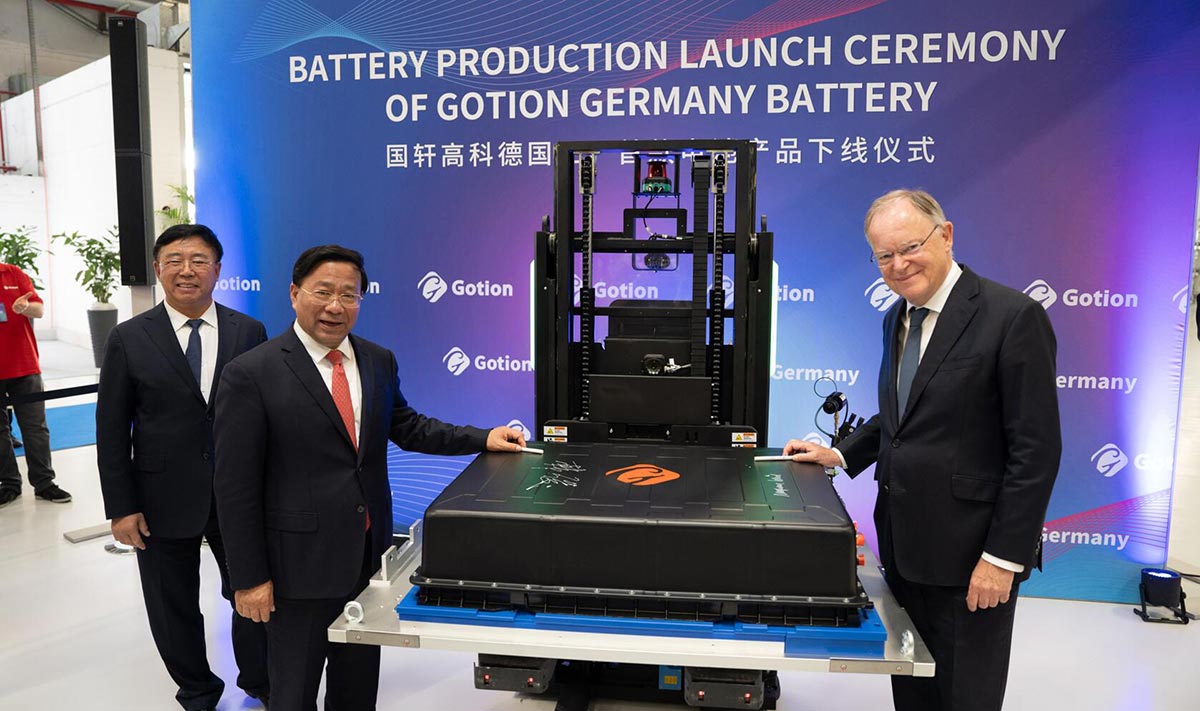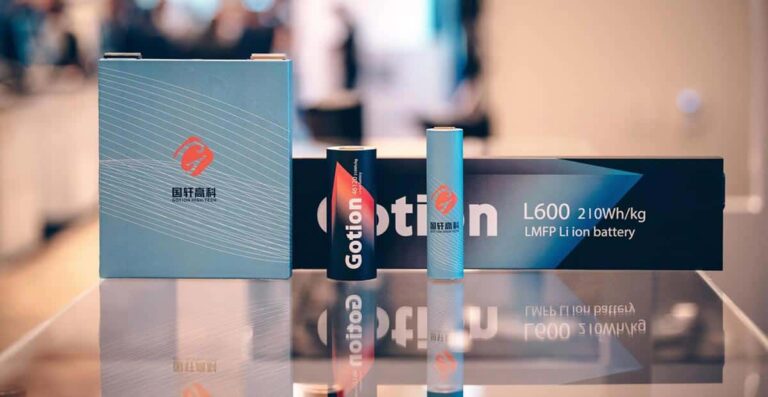Gotion's German battery plant is expected to be ready to supply European customers from October and could reach a real-world capacity of 5 GWh by mid-2024.
(Han Jun, party secretary of Anhui, and Stephan Weil, Governor of Lower Saxony, signed on the first battery pack produced at Gotion's factory in Germany. Image credit: Gotion)
Gotion High-tech's factory in Germany went into production after the Volkswagen-backed Chinese lithium battery giant acquired the facility through a takeover two years ago.
The plant, located in Göttingen in central Germany, is Gotion's first in Europe and saw the first locally-produced battery pack roll off the assembly line on September 16, the battery maker announced today.
The milestone marks Gotion's achievement of localized production and supply in Europe, with its batteries officially becoming "Made in Germany," it said.
The total capacity of the plant is planned to be 20 GWh, which is expected to be completed in four phases, and when fully completed, it is expected to realize an annual output of 2 billion euros, said Steven Cai, CTO of Gotion.
The Göttingen plant has already received a large number of European orders and is expected to be able to supply European customers from October, with actual capacity reaching 5 GWh by mid-2024, Gotion said.
The plant's battery pack products will be used in commercial vehicles, energy storage systems and passenger cars, and the facility will also serve as a research and development center, logistics center and after-sales service point for Gotion's European base.
Gotion announced on July 16, 2021, that it has signed a contract with the Bosch Group to acquire the latter's plant in Göttingen for its first production operation in Europe.
The plant, built in 1960, covers more than 170,000 square meters of land and 40,000 square meters of floor space, according to a statement at the time.
By 2025, both phases of the plant will be fully operational and the cumulative capacity is expected to reach 20 GWh, Gotion said on June 28, 2022.
The plant currently employs more than 200 German workers and has a production line automation rate of more than 70 percent, Gotion said today.
Peter Willemsen, COO of Gotion Global and managing director of Gotion Germany, said the spirit of cooperation between China and Europe was important in efforts to "make Europe green again."
The commissioning of the plant also marks a deepening of cooperation between the German state of Lower Saxony and China's Anhui province, with officials from both sides attending a ceremony held by Gotion.
(Chinese and German officials witnessed the commissioning of Gotion's first battery production line in Germany. Image credit: Gotion)
The 40-year history of cooperation between Lower Saxony and Anhui is the first of its kind, said Lower Saxony Governor Stephan Weil. "In the past, engines were the most important parts of fuel vehicles, but in the future, batteries will be the core components of electric vehicles," Weil added.
Gotion is a battery maker backed by German automotive giant Volkswagen. In December 2021, Volkswagen China increased its stake in Gotion to 26.47 percent, making it the largest shareholder in the Chinese battery maker.
In early 2022, Gotion was named the official production site for Volkswagen China's NCM and LFP unified batteries. On May 11 this year, Gotion received a procurement letter from Volkswagen, making the company a designated supplier to Volkswagen for overseas markets.
The commissioning of Gotion's battery plant will help accelerate the electrification transition of Germany's domestic carmakers, despite the fact that European carmakers are currently facing pressure from Chinese EV makers, with the European Union announcing on September 13 that it was launching an anti-subsidy investigation into Chinese EVs.
Nonetheless, Germany and China have strong business ties and a large number of common interests.
Chinese companies already employ more than 100,000 people in Germany and are on the rise, and provide an important technological boost in key areas for the future, said Michael Schumann, Chairman of the Board of the Federal Association for Economic Development and Foreign Trade, according to a press release from Gotion.
By 2030, there should be at least 15 million all-electric vehicles on Germany's roads, and the country is still a long way from realizing this goal, according to Schumann.
On the day its German plant went into operation, Gotion signed agreements with five European companies, including BASF, ABB, Ebusco, Ficosa, and Ideno, to collaborate on battery materials and product development, and the supply of automotive and energy storage products, according to the company.


